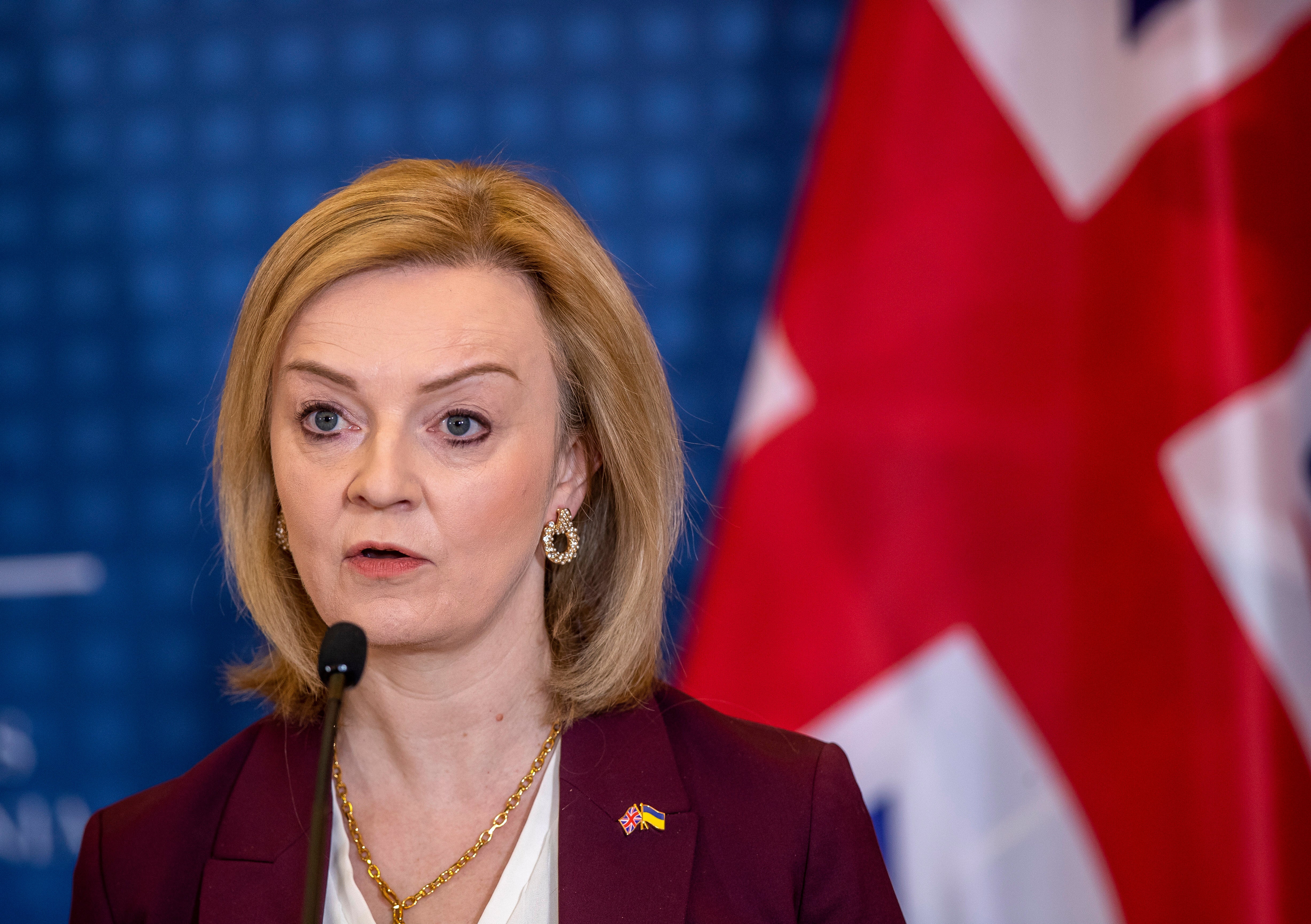UK and EU sanction 178 Russian separatists ‘aiding and abetting’ Putin in Ukraine
Leaders behind so-called Donetsk and Luhansk People’s Republic targeted

Your support helps us to tell the story
From reproductive rights to climate change to Big Tech, The Independent is on the ground when the story is developing. Whether it's investigating the financials of Elon Musk's pro-Trump PAC or producing our latest documentary, 'The A Word', which shines a light on the American women fighting for reproductive rights, we know how important it is to parse out the facts from the messaging.
At such a critical moment in US history, we need reporters on the ground. Your donation allows us to keep sending journalists to speak to both sides of the story.
The Independent is trusted by Americans across the entire political spectrum. And unlike many other quality news outlets, we choose not to lock Americans out of our reporting and analysis with paywalls. We believe quality journalism should be available to everyone, paid for by those who can afford it.
Your support makes all the difference.The UK and EU have imposed sanctions on 178 Russian separatists in the Donbas region who backed the illegal invasion of Ukraine – vowing to crack down on those “aiding and abetting” Vladimir Putin’s war machine.
Boris Johnson’s government also announced a series of new sanctions targeting Russian oligarchs’ family members, associates and employees – including Putin’s own assistant.
Britain joined Brussels in targeting those behind the so-called Donetsk and Luhansk People’s Republics, with Liz Truss saying that the shelling of a railway station in Kramatorsk had spurred the west into action.
The foreign secretary said: “In the wake of horrific rocket attacks on civilians in eastern Ukraine, we are today sanctioning those who prop up the illegal breakaway regions and are complicit in atrocities against the Ukrainian people.”
Ms Truss added: “We will continue to target all those who aid and abet Putin’s war. We will not rest in our mission to stop Putin’s war machine in its tracks.”
The foreign secretary also said that the latest UK sanctions package would extend the import ban on Russian goods.
“From tomorrow, we are banning the import of Russian iron and steel, as well as the export of quantum technologies and advanced materials that Putin sorely needs,” said Ms Truss.
Russia has refocused its military efforts in recent weeks as Russian president Vladimir Putin looks, according to Western intelligence, to mount an offensive on the separatist Donbas region.
Top individuals sanctioned by both the UK and EU include Alexander Ananchenko and Sergey Kozlov – self-styled prime minister and chair of government of the so-called Donetsk and Luhansk People’s Republics.
Some of the relatives and associates of oligarchs targeted by the Foreign Office for new UK sanctions include Pavel Ezubov – cousin of Oleg Deripaska, and Nigina Zairova, executive assistant to Mikhail Fridman.
Putin’s own assistant Andrey Fursenko and Vagit Alekperov, president of the leading Russian oil company PJSC Lukoil, are also subject to Britain’s travel ban and asset freeze under the new sanctions package.
Mr Johnson’s government has come in for criticism for failing to crack down quickly enough on individual oligarchs and the flow of Russian “dirty money” connected to the UK.
But the Foreign Office said the UK has now sanctioned over 1,400 individuals and businesses – including over 100 oligarchs and family members – since the invasion of Ukraine began.
The government has promised a second Economic Crime Bill in the months ahead, after MPs and campaigners claimed the first bill was rushed through with too many “loopholes”, allowing oligarchs to hide their wealth behind trusts and other complex financial vehicles.
Meanwhile, Brussels has been criticised for failing to act quickly enough on Russian energy dependence.
Despite a EU ban on coal from Russia, and moves to ban oil, consensus among the 27 EU member countries on ending Russian gas supply has proved more difficult to secure.
Though Berlin has agreed to wean itself off Russian fossil fuels by mid-2024, the German chancellor Olaf Scholz said last week it was not possible to cut his country’s supply of Russian gas quickly.



Join our commenting forum
Join thought-provoking conversations, follow other Independent readers and see their replies
Comments